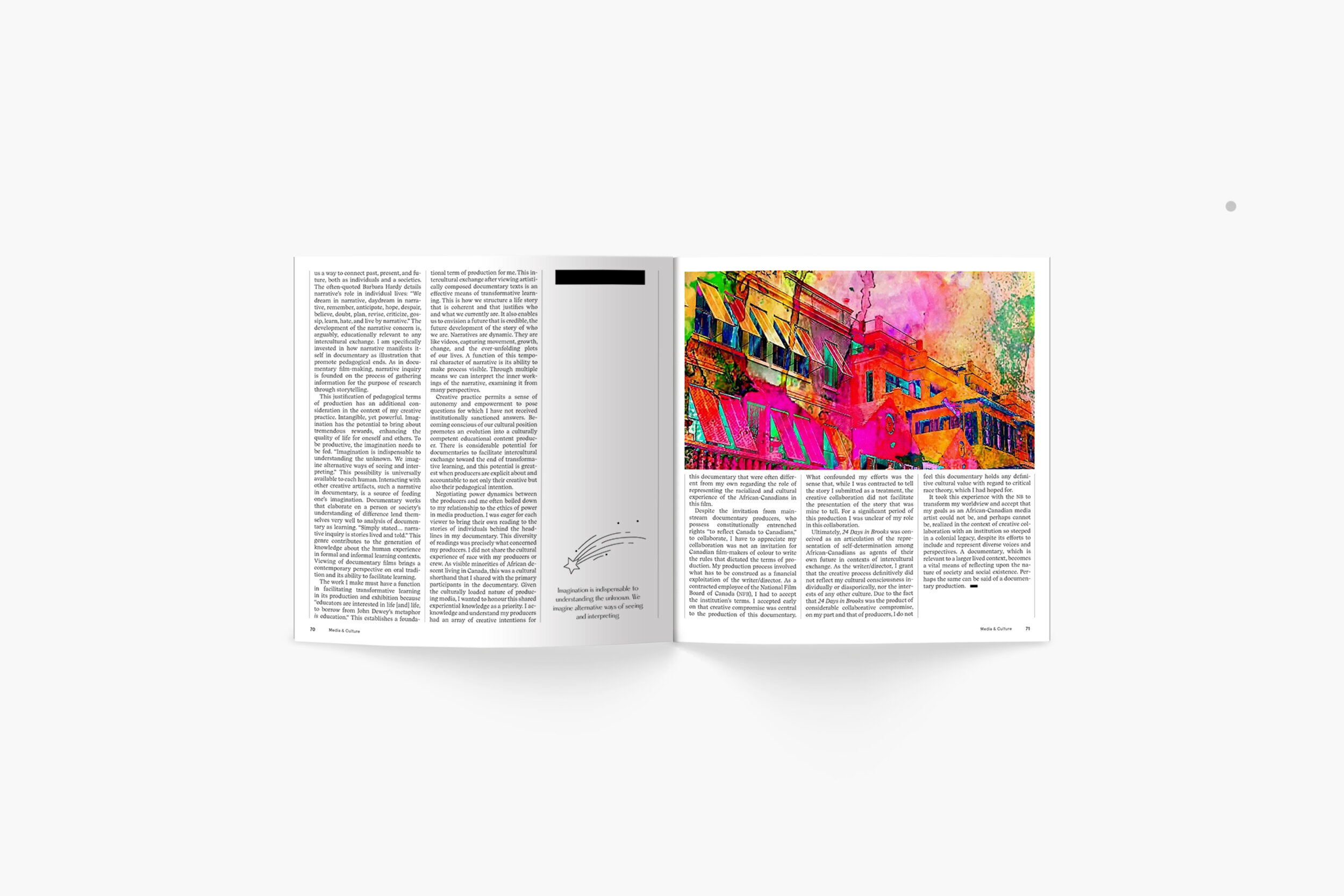Blackness in the Atmosphere
Dana Inkster
Imagination has the potential to bring about tremendous rewards, enhancing the quality of life for oneself and others. To be productive, the imagination needs to be fed. It is indispensable to understanding the unknown. We imagine alternative ways of seeing and interpreting. This possibility is universally available to each human. Interacting with other creative artifacts is a source of feeding one’s imagination.
In this feature, writer/director Dana Inkster explains how her propensity to employ the language of documentary cinema in its very symbolic nature may be perceived as no more than a failure to produce realistic, clear, and accomplished film-making by those who occupy positions outside of the artists’ sphere—because producers want to reflect “Canada to Canadians.” The creative process definitively did not reflect her cultural consciousness individually or diasporically, nor the interests of any other culture.
Inkster argues that the intercultural exchange after viewing artistically composed documentary texts is an effective means of transformative learning. A person’s interpretation of the experience creates meaning, which leads to a range in behaviour, mindset, and beliefs. This is how we structure a life story that is coherent and that justifies who and what we currently are. It also enables us to envision a future that is credible, the future development of the story of who we are. Narratives are dynamic. They are like videos, capturing movement, growth, change, and the ever-unfolding plots of our lives. After all, Humans are storytelling organisms who, individually and collectively, lead storied lives.
Artwork by Joan Butterfield
Line drawings by me





